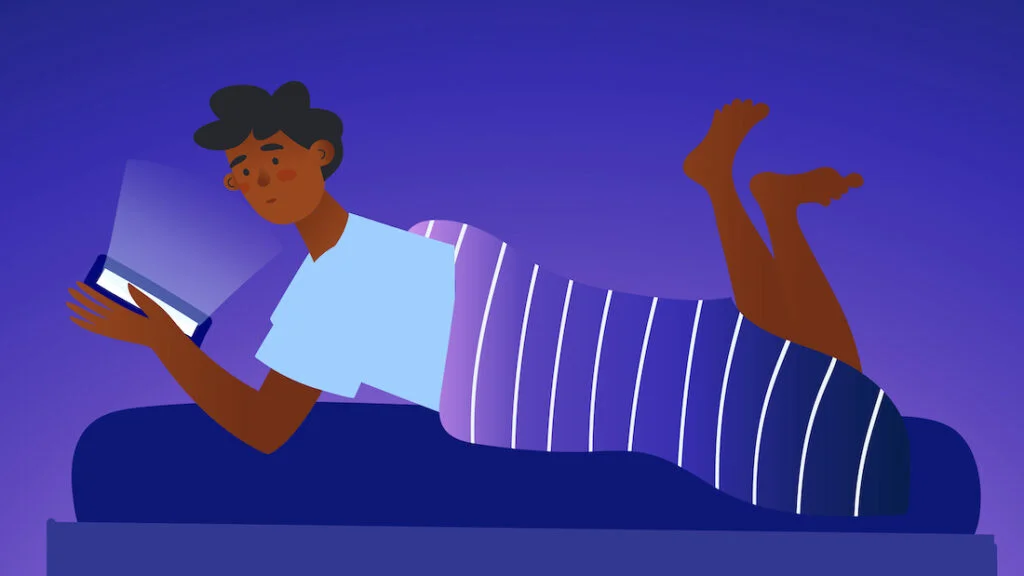
Any parent who has a teenager with a phone knows that there can be some serious late night screen time without limitations. And even sometimes with them. Because, well, they are teens. But new research shows that it matters what kinds of interactions teens are having on their phones as well. It makes sense that playing a lively and interactive video game with friends might be much different than passively reading when it comes to sleep. So, if you can’t win the big fight of getting them off screens, you might be able to teach them about the research behind leaving more relaxed phone activities for before bed.
The study was published in the Journal of Adolescent Health, the official publication of the Society of Adolescent Health and Medicine, on Dec. 13th (1). Researchers set out to determine the effects of duration and timing of screen-based activities on sleep, with 475 adolescents giving three or more days of daily survey and nighttime sleep data each. The results were clear.
Teens started sleeping later when they played more video games than their daily average. They also feel asleep later on days they use their phones to communicate with their friends, and it also impacts total sleep duration. Finally, those who played video games in the hour before bed took longer to fall asleep as well. The researchers concluded that “passive screen usage” such as browsing the internet or watching videos may not affect sleep timing or duration, but that limiting screen-based activities generally helps their well-being and sleep health.
The research adds to the already existing conversation about types of screen use and teen sleep. According to Common Sense Media’s 2023 smartphone research report, 60 percent of teen participants used their smartphone during school nights, with social media, YouTube, and gaming being the top uses (2).
Type and Length of Screen Time Use Matter
Psychiatrist Dr. Sid Khurana at Nevada Mental Health says that after a day of use, daily screen time is associated with “lower psychological well-being, including less curiosity, lower self-control, more distractibility, more difficulty making friends, less emotional stability, being more difficult to care for, and inability to finish tasks.” Those who use screens too much have a high prevalence of psychiatric conditions.
“Among 14- to 17-year-olds, high users of screens — 7+ hour/day vs. low users of 1 hour/day — were more than twice as likely to ever have been diagnosed with depression, ever diagnosed with anxiety, treated by a mental health professional or have taken medication for a psychological or behavioral issue in the last 12 months,” he says. “Moderate use of screens (4 hours/day) was also associated with lower psychological well-being. Non-users and low users of screens generally did not differ in well-being.”
Associations between screen time and lower psychological well-being were larger among adolescents than younger children, he adds.
Khurana thinks that any type of screen late at night is disruptive to “normal melatonin and light mediated circadian rhythm.” But, activity type does matter.
“For example, video games with violent/graphic content can stimulate the sympathetic nervous system, making it harder to fall asleep. Chatting with friends can be mild but can also potentially lead to triggering because of cyberbullying/relational dynamics,” he says. “The mindless scrolling on the other hand can be very addictive and can continue for hours, and teenagers not realizing how time passes, and they might miss the critical window of falling asleep and then get behind on sleep, or enter a phase of ‘sleep debt’ which they try to recover by sleeping in on the weekends or after school on weekdays, which further throws off the circadian rhythm.”
Screen Recommendations For Kids of All Ages
Khurana recommends parents follow these recommendations:
• Until 18 months of age limit screen use to video chatting along with an adult (for example, with a parent who is out of town).
• Between 18 and 24 months screen time should be limited to watching educational programming with a caregiver.
• For children 2-5, limit non-educational screen time to about 1 hour per weekday and 3 hours on the weekend days.
• For ages 6 and older, encourage healthy habits and limit activities that include screens.
• Turn off all screens during family meals and outings.
• Learn about and use parental controls.
• Avoid using screens as pacifiers, babysitters, or to stop tantrums.
• Turn off screens and remove them from bedrooms 30-60 minutes before bedtime.
Finally, zero in on teen sleep recommendations to determine if phones might be a source of preventing your teens from getting enough sleep.
Teaching Sleep and Mental Health Strategies on Devices
You can also use this as an opportunity to teach teens about more relaxing ways of using screens to encourage sleep, if they are going to be on their phones. “Being engaged with a device, even if just scrolling, would be a potential barrier to someone falling asleep quickly. However, if they have on a guided meditation, music, podcast, that could help them to minimize negative thoughts that come up when you are trying to fall asleep and lead to sleep,” says Julie Robinson, LMFT, M.Ed. at Las Vegas Therapy Center.
“As a parent myself, I know it can be difficult to be sure what the best strategy is with your specific child. I do, as a therapist, talk to a lot of teens and recommend that parents find alternative ways to motivate or discipline their children rather than taking away their phone or devices.” She reminds parents that these devices are their “link to their friends and self-soothing strategies.”
“Taking away their device is counterproductive to your efforts for them to talk with you more openly and trust that you have their best interests at heart. Parents will have that as their main tool and it really isn’t producing the results they are looking for and can cause their child to become more anxious or depressed.”
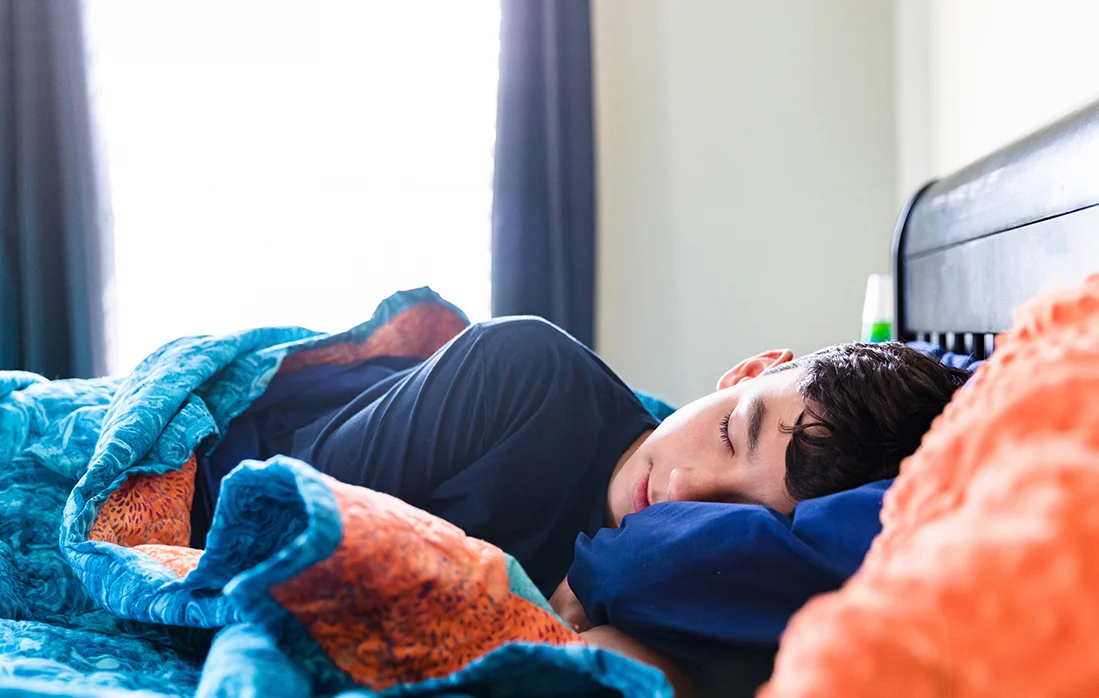
Are Extracurriculars to Blame For Kids’ Poor Sleep Schedules? Parents Seem to Think So
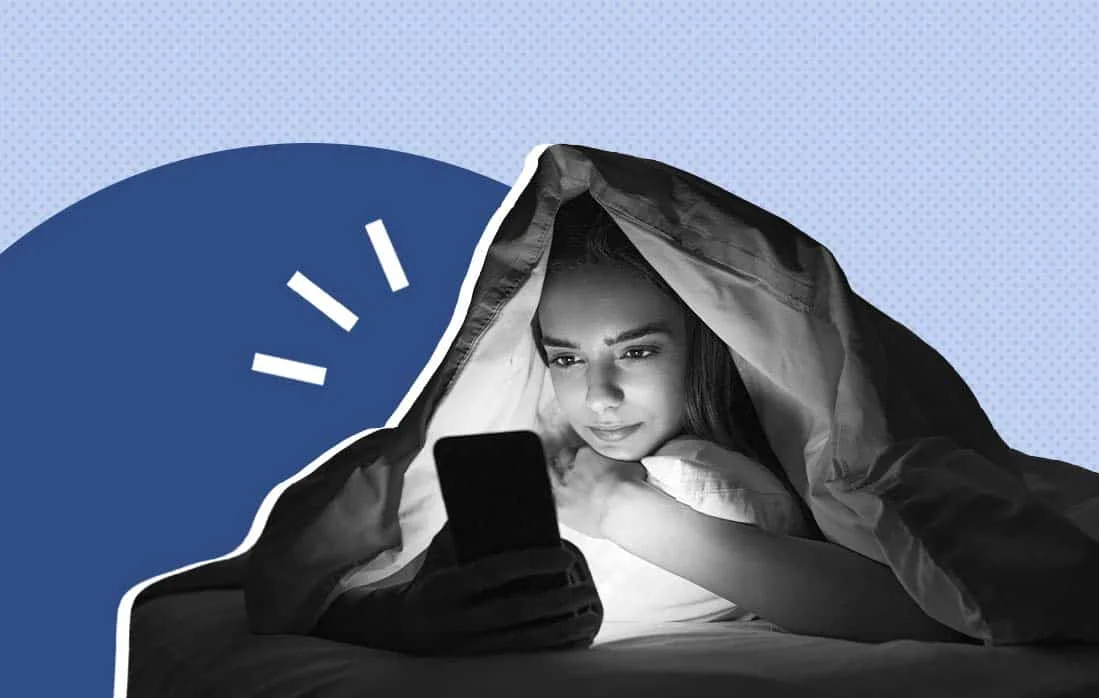
The CDC Draws a Direct Link Between Screen Time and Teenagers’ Poor Sleep
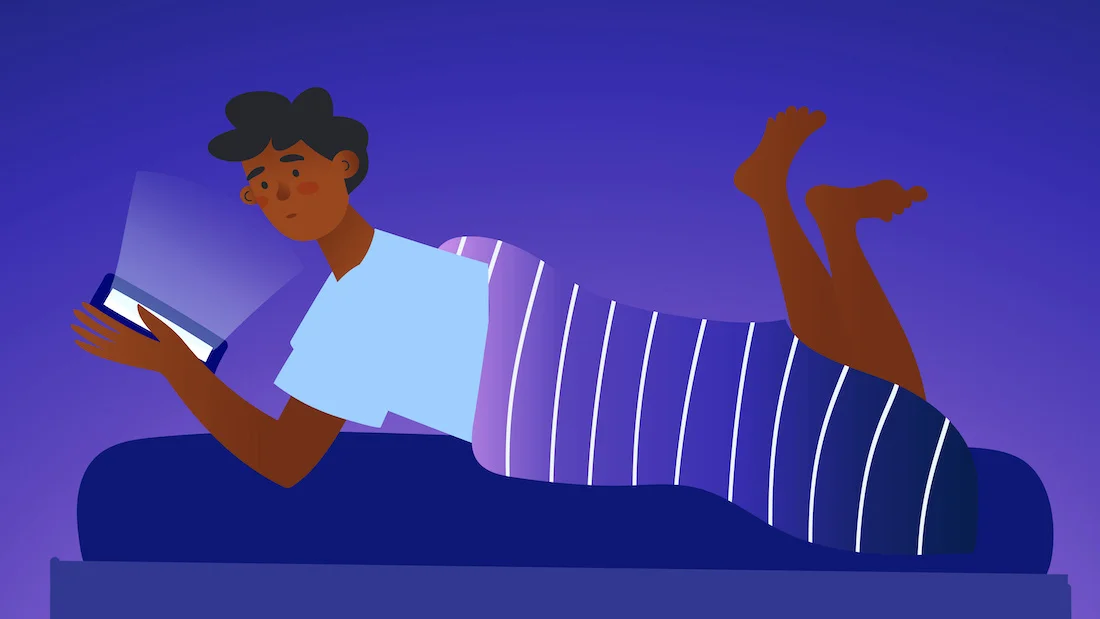
We Know the Pandemic Had a Catastrophic Effect on Teens — But What About Their Sleep Habits?
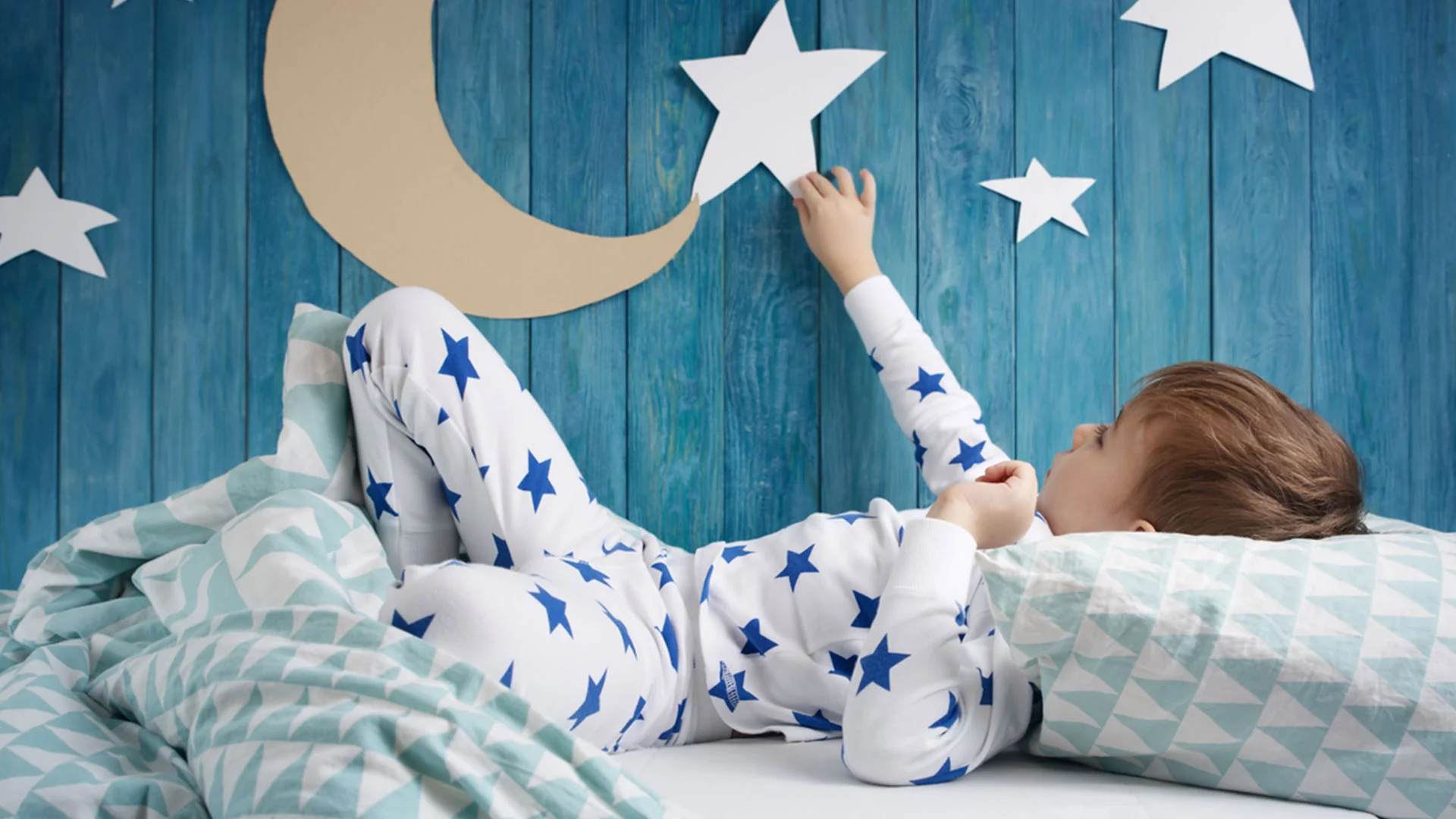
Children and Sleep: A Parent’s Guide
Sources
1. David A. Reichenberger, Ph.D., Lindsay Master, M.A.S., Gina Marie Mathew, Ph.D., Orfeu M. Buxton, Ph.D., Lauren Hale, Ph.D., Anne-Marie Chang, Ph.D.; “Interactive Screen-Based Activities Predict Worse Actigraphic Sleep Health That Night Among Adolescents,” Journal of Adolescent Health; https://www.jahonline.org/article/S1054-139X(23)00558-X/fulltext; December 13, 2024.
2. Jenny S. Radesky, M.D., Heidi M. Weeks, Ph.D., Alexandria Schaller, B.A., Michael B. Robb, Ph.D., Supreet Mann, Ph.D., Amanda Lenhart, M.A.; “Constant Companion: A Week in the Life of a Young Person’s Smartphone Use,” Common Sense Media; https://www.commonsensemedia.org/sites/default/files/research/report/2023-cs-smartphone-research-report_final-for-web.pdf; December 2024.
Khurana, Sid. Author interview. December 2024.
Robinson, Julie. Author interview. December 2024.

























